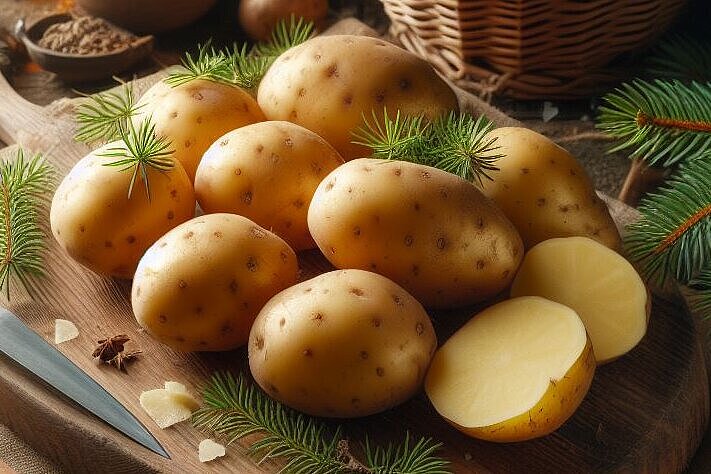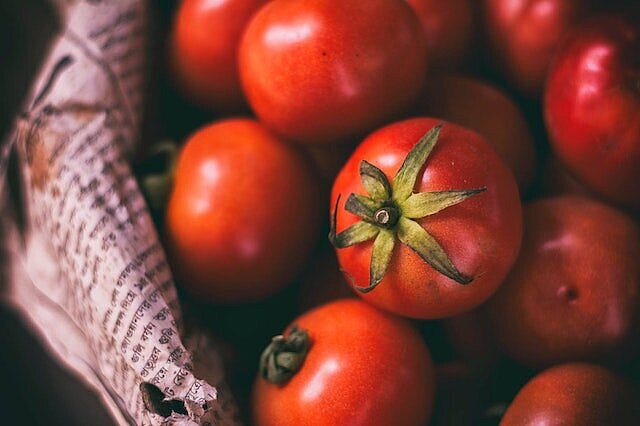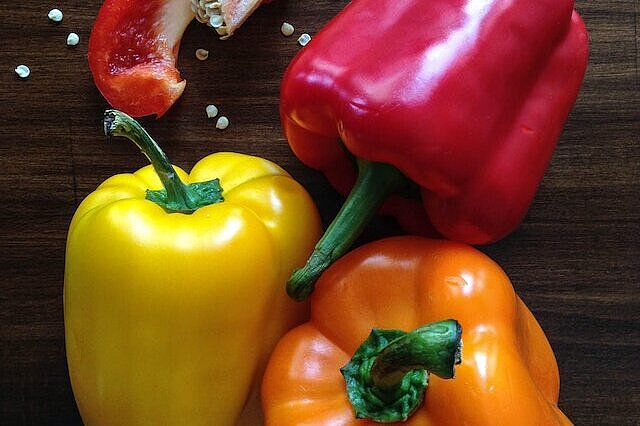Eggplant

What is an eggplant?
The eggplant belongs to the nightshade family, which also includes potatoes, tomatoes and peppers. It contains solanine, an alkaloid that can be poisonous in high doses. Solanine is mainly found in the green leaves and stems of the plant, but also in the unripe fruit.
The eggplant has a high water content of around 92 percent and is therefore very low in calories. It also provides vitamin C, B vitamins, potassium, magnesium and iron. It has an anti-inflammatory effect, lowers cholesterol and regulates blood pressure. It can also promote intestinal health as it contains prebiotics.
Why is the eggplant controversial for dogs?
Eggplant can have both benefits and drawbacks for dogs, depending on how it is prepared and in what quantities it is fed. Here are some of them:
Pros: It provides important nutrients for the immune system, nerves and cardiovascular system. It supports digestion and intestinal flora through fiber and prebiotics3. It protects against oxidative stress thanks to its antioxidants.
Disadvantages: Contains solanine, which can cause gastrointestinal discomfort or skin irritation in sensitive or allergic dogs. It can aggravate inflammatory diseases such as osteoarthritis due to its nightshade properties. Because of its sweet taste, many dogs do not like to eat it.
How to dose eggplant for dogs?
Eggplant is not an important vegetable for dogs. If you want to give it to your dog, you should follow a few rules:
- Only use ripe fruit without green spots or leaves.
- Boil the eggplant before feeding it or give it steamed or baked. Heating reduces the solanine content.
- Only give your dog small amounts of eggplant as a side dish or snack. As a rule of thumb: 1 teaspoon per 5 kg body weight per day.
- Avoid using salt or spices when preparing eggplants for your dog.
- Observe your dog for possible signs of intolerance or allergy after feeding it eggplants. If he exhibits vomiting, diarrhea or itching, stop giving him eggplant.
- If your dog suffers from a chronic inflammatory disease or has a known allergy to nightshade plants, you should not give him eggplant.
Eggplant is a controversial vegetable for dogs. It has some health benefits, but also some risks. If you want to give it to your dog, you should always cook it and only feed it in small quantities.
Properties 5
Are you looking for other ingredients with a specific property?
Just click on them to find more.
If you notice any signs of hypersensitivity or poisoning in your dog, you should see your vet immediately. We are not a substitute for a vet, but we try to be as accurate as possible. Every dog reacts differently and we recommend you get a second opinion or consult your vet if in doubt.
Stay healthy and take good care of your four-legged friend!😊
Similar to Eggplant
Potatoes consist of 78% water and 18% carbohydrates. Carbohydrates are not essential for dogs, but can be a good source of energy, especially for active or sporty dogs. Carbohydrates are broken down...
Tomatoes are fruits that belong to the nightshade family. They originally come from South America and were brought to Europe by the Spanish. Today there are many different varieties of tomatoes,...
Peppers are a plant from the nightshade family, which also includes tomatoes, potatoes and eggplants. There are different varieties of peppers, which vary in shape, color and heat. The best known...
Zucchinis are a form of garden pumpkin that originally comes from Central America. Its name comes from the Italian and means "small pumpkin". Zucchinis have an elongated shape and a green or yellow...



